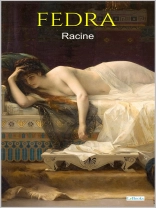Fedra by Jean Racine is a classic tragedy that explores the destructive power of passion, fate, and moral conflict. Inspired by Greek mythology and the works of Euripides and Seneca, the play follows Phaedra, the wife of King Theseus, who is consumed by an illicit and uncontrollable love for her stepson, Hippolytus. As she struggles with her forbidden desires, deception and miscommunication lead to tragic consequences, highlighting the inevitability of fate and the devastating effects of human weakness.
Since its premiere in 1677, Phaedre has been celebrated for its elegant verse, psychological depth, and intense emotional drama. Racine’s masterful use of classical French alexandrine poetry and his ability to depict the torment of the human soul have secured the play’s place as one of the greatest works of French classical theater. The themes of guilt, honor, and the struggle against destiny continue to resonate with audiences across generations.
The play’s enduring relevance lies in its exploration of the fragility of human nature and the tension between duty and desire. Phaedre remains a powerful meditation on passion and downfall, offering a timeless reflection on the consequences of unchecked emotions and the inescapable grip of fate.
Yazar hakkında
Jean Racine was a French playwright and poet, recognized as one of the greatest dramatists of the 17th century. A key figure of French classical tragedy, Racine is known for his masterful use of Alexandrine verse and his exploration of human passion, fate, and divine justice. His works, often centered on intense psychological conflicts, continue to be studied and performed as pillars of classical theater.
Racine’s theatrical career flourished in the court of Louis XIV, where he became a rival of Pierre Corneille, another major dramatist of the era. His plays, written in elegant and precise Alexandrine verse, depict characters consumed by overwhelming passions, often leading to tragic consequences. Among his most celebrated works are Andromaque (1667), Phèdre (1677), and Britannicus (1669).
Racine’s tragedies are marked by their refined language, strict adherence to the unities of time, place, and action, and their exploration of human frailty. His ability to blend poetic beauty with psychological realism set him apart as a master of the tragic genre. His influence extends beyond the 17th century, inspiring playwrights, poets, and literary theorists.
Despite abandoning the theater in the later years of his life to focus on religious works, Racine's legacy remains intact. His plays continue to be performed worldwide, celebrated for their emotional intensity and stylistic brilliance.












